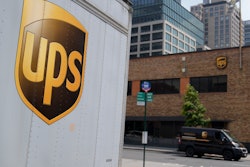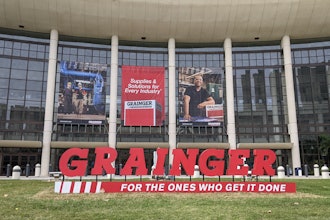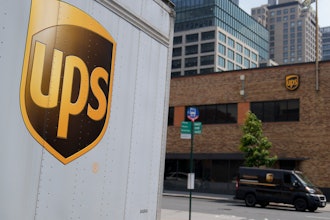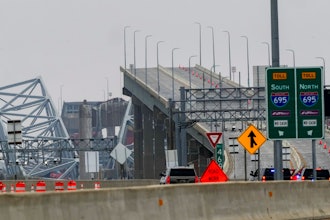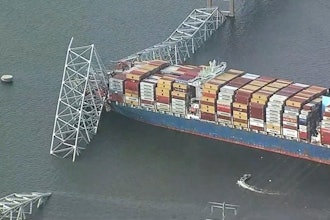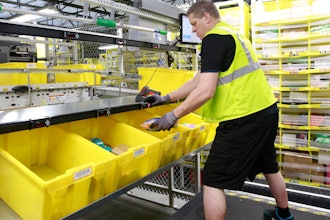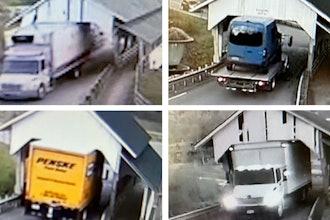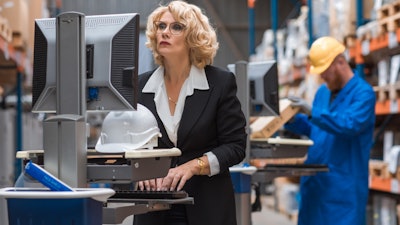
Although any building that stores raw materials or manufactured goods before distribution is called a warehouse, there are vast differences from one building to another. For instance, the largest warehouses are the size of 90 football fields and store vast quantities of products. Others are small, with limited available space. However, in an ever-competitive world, all are likely to be under pressure to maximize productivity while maintaining a safe working environment. This can be realized through the implementation of technology, such as powered carts known as mobile workstations.
Robert Brown, marketing executive at industrial battery manufacturer Ultralife, explores the benefits that carts can bring to any size of warehouse and the crucial role that battery solutions play.
In online retail, next-day delivery is becoming increasingly expected by customers, so a large warehouse is likely to be tasked with processing hundreds of thousands of products per day — making every second count. For example, one staff member may need to apply around 1,000 labels per day to boxes scattered throughout the building. However, the nearest desktop computer may be several minutes’ walk away. Therefore, it is not time-efficient to have the operator walk to a desktop computer every time they need to print new labels, but there is likely to be room for a large cart, containing a desktop computer and printer, to be wheeled around so that they can print labels right next to the box they are sticking them to.
When wheeling a cart, it is not practical to keep unplugging the devices it is carrying from AC mains and, in a large warehouse, the nearest plug socket could be some distance from the packages it is processing. An alternative to AC mains is to attach a portable power solution that uses batteries to the side of the cart and use wires to connect it to each of the devices that are being powered — for example, desktop computers and printers. These devices may require more power than can be delivered by a single battery, so some power systems — such as Ultralife’s X5 — give the option to use multiple batteries. In the X5 Power System, one or two 276Wh hot-swappable Lithium Iron Phosphate smart batteries can be harnessed to give an output of 120VAC 60Hz, which can effectively power devices such as computers, monitors, USB hubs, scanners and printers up to a maximum of 150 watts.
From a safety perspective, large warehouses are likely to house many bulky packages weighing over 25 kilograms, which would be unsafe for a warehouse worker to carry to a desktop computer for processing. Therefore, a mobile cart can be used to process goods on the receiving dock before they are picked up by a forklift truck and placed in a rack several meters above the ground. Since there may not be an AC mains supply in the loading dock, and trailing wires could get tangled up between the boxes, battery-powered carts are well-suited for this application.
Although the X5 is the perfect way to bring safety and productivity benefits to large warehouses, where space is not a problem, smaller warehouses may not have room for a large cart and power solution to be used but, equally, may not be processing such a high volume of parcels. In those cases, small pole/mobile carts may be used instead, transporting a barcode scanner and a tablet computer that only require USB-C or USB-A power. For these warehouses, Ultralife has developed the X5-LITE charging solution. This utilizes the same 276Wh hot-swappable Lithium Iron Phosphate smart battery as the X5 Power System but in a small battery cradle.
In a small warehouse, the time needed to walk between packages and a desktop computer station may be considerably less, so it may seem like this does not have such a big impact on productivity. However, it can add up over time: 15 seconds every hour equates to 36.5 hours a year, which is nearly a full working week for a warehouse operative.
With regard to safety, trailing wires and extension cords can be hazardous particularly in a small warehouse, where there is not much room to get around. As well as not requiring an AC mains cord, battery-powered carts can house the cables for the devices they are transporting inside a plastic housing.
Although not all warehouses are the same, they can all benefit from using the latest battery technology to power carts that improve safety and productivity.





